《“一国两制”下香港的民主发展》白皮书(双语全文)
新华网 2021-12-20 14:18

三、中央政府坚定支持香港特别行政区民主向前发展
III. The Central Government Is Committed to Developing Democracy in Hong Kong
香港回归祖国后纳入国家治理体系,中央政府坚决贯彻落实“一国两制”方针和基本法,支持香港特别行政区依法有序发展民主。
Since Hong Kong’s reintegration into China’s national governance system, the central government has remained committed to the policy of One Country, Two Systems and to the Basic Law of the HKSAR, fully supporting the orderly development of democracy in Hong Kong in accordance with the law.
按照基本法原附件一和附件二的规定,香港特别行政区2002年选举产生了第二任行政长官,1998年、2000年、2004年分别选举产生了第一届、第二届、第三届立法会,民主成分不断增加,基本法规定的香港回归后前十年的选举安排得到全面落实,香港特别行政区民主得以成功实践。
In accordance with the original Annex I and Annex II of the Basic Law, the Second-term Chief Executive of the HKSAR was elected in 2002, and the first, second and third Legislative Councils of the HKSAR were formed in 1998, 2000 and 2004. With these elections, the relevant provisions of the Basic Law for the period prior to 2007 were fully implemented, representing gradual progress in advancing democracy.
2004年4月6日,全国人大常委会通过《关于〈中华人民共和国香港特别行政区基本法〉附件一第七条和附件二第三条的解释》(“4·6解释”),明确2007年以后如需对香港特别行政区行政长官和立法会产生办法进行修改应遵循的法定程序,为香港回归十年后上述两个产生办法进一步扩大民主成分,直至实现“双普选”,提供了操作性程序。中央政府按照这一程序为推动香港特别行政区民主向前发展作出三次重大努力。
On April 6, 2004, the NPC Standing Committee adopted the Interpretation of Article 7 of Annex I and Article III of Annex II to the Basic Law of the Hong Kong Special Administrative Region of the People’s Republic of China (April 6 Interpretation), laying out the statutory procedures that must be followed in amending the methods for selecting the Chief Executive and for forming the Legislative Council of the HKSAR (Two Methods). The April 6 Interpretation established procedures for making the Two Methods more democratic after 2007, and for eventually moving towards dual universal suffrage.
The central government has advanced the system of democracy in Hong Kong pursuant to these procedures. It has taken three significant steps.
(一)第一次努力:批准对行政长官和立法会产生办法作出修改
1. First Step: Giving Approval to Amend the Election Methods for the Chief Executive and the Legislative Council
根据“4·6解释”,2004年4月15日,香港特别行政区行政长官向全国人大常委会提交关于2007年行政长官和2008年立法会产生办法是否需要修改的报告,反映了多数香港居民希望增加两个产生办法民主成分的意愿,也反映了部分人要求2007年行政长官和2008年立法会全部议员由普选产生的声音。
On April 15, 2004 in accordance with the April 6 Interpretation, the Chief Executive of the HKSAR submitted to the NPC Standing Committee the Report on Whether There Is a Need to Amend the Methods for Selecting the Chief Executive of the Hong Kong Special Administrative Region in 2007 and for Forming the Legislative Council of the Hong Kong Special Administrative Region in 2008. The report conveyed both the desire of the majority of Hong Kong people to make the Two Methods more democratic, and the views held by some people in Hong Kong that the 2007 election of the Chief Executive and the 2008 election of all Legislative Council members should be conducted by universal suffrage.
全国人大常委会经征询香港各界人士的意见,于2004年4月26日作出《关于香港特别行政区2007年行政长官和2008年立法会产生办法有关问题的决定》(“4·26决定”)。该决定指出,香港实行民主选举的时间不长,香港社会各界对两个产生办法如何修改又存在较大分歧。在此情况下,实现“双普选”的条件还不具备。鉴此,2007年第三任行政长官和2008年第四届立法会选举,不实行由普选产生的办法。在此前提下可按照基本法有关规定对两个产生办法作出符合循序渐进原则的适当修改。“4·26决定”既符合香港实际情况,又为特别行政区民主发展留下空间。这是中央政府推动香港特别行政区民主发展的第一次重大努力。
After soliciting opinions from various sectors of Hong Kong, on April 26, 2004, the NPC Standing Committee adopted the Decision on Issues Relating to the Methods for Selecting the Chief Executive of the Hong Kong Special Administrative Region in the Year 2007 and for Forming the Legislative Council of the Hong Kong Special Administrative Region in the Year 2008 (April 26 Decision).
In the decision it was pointed out that as democratic elections were new in Hong Kong, and as there were substantial differences of opinion in Hong Kong on how to amend the Two Methods, the conditions were not yet ripe in Hong Kong for electing the Chief Executive and Legislative Council by universal suffrage. Universal suffrage would therefore not be adopted in the election of the Third-term Chief Executive in 2007 or the election of all members of the Fourth Legislative Council in 2008. Appropriate amendments consistent with the April 26 Decision could therefore be made to the Two Methods in accordance with the relevant provisions of the Basic Law and the principle of making gradual and orderly progress.
The April 26 Decision created more scope for expanding democracy in Hong Kong. This was the first major step taken by the central government to advance the region’s system of democracy.
2005年10月19日,香港特别行政区政府根据“4·26决定”,提出了2007年行政长官及2008年立法会产生办法建议方案。该方案扩大了民主成分,得到多数居民的支持。但是,2005年12月21日,立法会中自称“民主派”的议员在表决时对特别行政区政府提出的相关议案投下反对票,致使该方案未能在立法会获得法定的全体议员三分之二多数通过。2007年第三任行政长官和2008年第四届立法会只能沿用原有办法产生。香港特别行政区成立十年后面临的民主向前发展的第一次机遇就此丧失。这完全是反中乱港势力蓄意对抗、漫天要价、竭力阻挠的结果。
Acting in accordance with the April 26 Decision, on October 19, 2005 the HKSAR government presented the Package of Proposals for the Methods for Selecting the Chief Executive in 2007 and for Forming the Legislative Council in 2008. These proposals made the Two Methods more democratic, and won the support of the majority of Hong Kong people. However, they did not secure the required two-thirds majority in the Legislative Council vote on December 21, 2005, as some self-styled “democrats” on the council voted against the package.
As a result, the first opportunity to improve democracy after 2007 was lost, and the Third-term Chief Executive was selected in 2007 and the Fourth Legislative Council was formed in 2008 in accordance with the existing methods. The responsibility for this missed opportunity lies entirely with those seeking confrontation and conflict and attempting to overturn the constitutional order and destabilize Hong Kong.
(二)第二次努力:为实现普选目标定下时间表
2. Second Step: Setting a Timetable for Universal Suffrage
2007年香港特别行政区第三任行政长官产生后,香港社会希望尽早明确普选的时间表以及2012年第四任行政长官和第五届立法会产生办法。2007年12月12日,行政长官向全国人大常委会提交关于政制发展咨询情况及2012年行政长官和立法会产生办法是否需要修改的报告。
After the Third-term Chief Executive of the HKSAR was elected in 2007, the people of Hong Kong hoped that a timetable could be set as early as possible for universal suffrage, and that methods for electing the Fourth-term Chief Executive and for forming the Fifth Legislative Council in 2012 could be adopted.
2007年12月29日,全国人大常委会作出《关于香港特别行政区2012年行政长官和立法会产生办法及有关普选问题的决定》(“12·29决定”)。根据该决定,2012年第四任行政长官的具体产生办法和第五届立法会的具体产生办法可以作出适当修改;2017年第五任行政长官的选举可以实行由普选产生的办法;在此之后,立法会的选举可以实行全部议员由普选产生的办法。全国人大常委会同意对2012年第四任行政长官和第五届立法会的产生办法作出适当修改,特别是明确实现“双普选”的时间表,把实行普选的时间节点确定在2017年这个“五十年不变”中期的前半段,充分彰显了中央政府落实基本法关于最终达至“双普选”目标的诚意。这是中央政府推动香港特别行政区民主向前发展的第二次重大努力。
On December 12, 2007, the Chief Executive of the HKSAR submitted to the NPC Standing Committee the Report on the Public Consultation on Constitutional Development and on Whether There Is a Need to Amend the Methods for Selecting the Chief Executive of the Hong Kong Special Administrative Region and for Forming the Legislative Council of the Hong Kong Special Administrative Region in 2012.
On December 29, 2007, the NPC Standing Committee adopted the Decision on Issues Relating to the Methods for Selecting the Chief Executive of the Hong Kong Special Administrative Region and for Forming the Legislative Council of the Hong Kong Special Administrative Region in the Year 2012 and on Issues Relating to Universal Suffrage (December 29 Decision). This decision allowed that appropriate amendments could be made to the Two Methods for elections in 2012, the Fifth-term Chief Executive could be elected by universal suffrage in 2017, and after the election of the Chief Executive, all the members of the Legislative Council could also be elected by universal suffrage.
By making the December 29 Decision, the NPC Standing Committee gave approval to amend the Two Methods for the 2012 elections. In particular, the timetable for universal suffrage was set. The central government had pledged that its basic policies regarding Hong Kong would remain unchanged for 50 years from 1997. The timetable for universal suffrage to begin in 2017, which was early in the first half of the 50-year period, highlighted the commitment of the central government to realizing the goal of dual universal suffrage laid down in the Basic Law of the HKSAR. This was the second major step taken by the central government to advance the system of democracy in Hong Kong.
根据该决定,2010年4月14日,香港特别行政区政府公布了关于2012年行政长官及立法会产生办法建议方案,并在6月7日以议案的方式提交立法会。其重点是将行政长官选举委员会人数由800人增至1200人,立法会议席由60席增至70席。2010年6月24日及25日,立法会分别通过关于2012年行政长官和立法会产生办法的修订。2010年7月28日,行政长官同意这两个修订并报请全国人大常委会批准和备案。2010年8月28日,全国人大常委会决定予以批准和备案。2012年3月和9月,第四任行政长官和第五届立法会按照新的办法选举产生。这次对两个产生办法的修改进一步增加了民主成分,充分体现了中央政府在香港特别行政区民主发展问题上的积极态度。
On April 14, 2010, in accordance with the December 29 Decision, the HKSAR government released the Package of Proposals for the Methods for Selecting the Chief Executive and for Forming the Legislative Council in 2012 and submitted it to the Legislative Council on June 7. The main features of the package are as follows: The members of the Election Committee would increase in number from 800 to 1,200, and the number of seats in the Legislative Council would expand from 60 to 70.
On June 24-25, 2010, the Legislative Council adopted the proposals to amend the methods for electing the Chief Executive and forming the Legislative Council in 2012.
On July 28, 2010, the Chief Executive gave consent to the amendments and submitted them to the NPC Standing Committee for approval and for the record.
On August 28, 2010, the NPC Standing Committee approved the amendments and placed them on the record.
In March and September 2012, the Fourth-term Chief Executive and the Fifth Legislative Council were elected by the new methods.
The amended methods further increased democracy in the Hong Kong electoral system, fully demonstrating the goodwill and readiness of the central government to support the development of democracy in Hong Kong.
(三)第三次努力:为实现行政长官普选绘制路线图
3. Third Step: Drawing Up a Roadmap for Electing the Chief Executive by Universal Suffrage
随着2017年临近,香港社会希望尽快明确第五任行政长官普选的具体办法。2014年7月15日,香港特别行政区行政长官向全国人大常委会提交关于2017年行政长官及2016年立法会产生办法是否需要修改的报告。
As 2017 drew near, the people of Hong Kong hoped that the method for electing the Fifth-term Chief Executive of the HKSAR by universal suffrage could be agreed as quickly as possible. On July 15, 2014, the Chief Executive of the HKSAR submitted to the NPC Standing Committee the Report on Whether There Is a Need to Amend the Methods for Selecting the Chief Executive of the Hong Kong Special Administrative Region in 2017 and for Forming the Legislative Council of the Hong Kong Special Administrative Region in 2016.
2014年8月31日,全国人大常委会经广泛征求香港各界人士的意见,作出《关于香港特别行政区行政长官普选问题和2016年立法会产生办法的决定》(“8·31决定”)。该决定根据香港的实际情况和香港多数居民的意愿,重申从2017年开始行政长官选举可以实行由普选产生的办法,明确了行政长官普选制度的若干核心要素;在行政长官普选以后,立法会选举可以实行全部议员由普选产生的办法。中央政府依法履行宪制责任,为香港特别行政区拟定行政长官普选办法指明了方向、确定了原则。这是中央政府推动香港特别行政区民主向前发展的第三次重大努力。
On August 31, 2014, after soliciting opinions from a broad sector of the Hong Kong public, the NPC Standing Committee made the Decision on Issues Relating to the Selection of the Chief Executive of the Hong Kong Special Administrative Region by Universal Suffrage and on the Method for Forming the Legislative Council of the Hong Kong Special Administrative Region in the Year 2016 (August 31 Decision).
In view of the realities in Hong Kong and in response to the wishes of the majority of people in Hong Kong, the NPC Standing Committee reaffirmed in the August 31 Decision that from 2017 the Chief Executive of the HKSAR would be elected by universal suffrage, and it specified the key elements of the method. It was also reaffirmed that after the election of the Chief Executive by universal suffrage, all the members of the Legislative Council of the HKSAR would likewise be elected by universal suffrage.
This decision set out the principles and guidelines for electing the Chief Executive by universal suffrage, a step taken by the central government to fulfill its constitutional responsibility. It was also the third major step taken by the central government to advance democracy in Hong Kong.
但是,香港所谓的“民主派”继续顽固坚持对抗思维,罔顾基本法有关规定,极力攻击“8·31决定”,拒绝接受特别行政区政府据此提出的行政长官普选方案,反而提出公然违反基本法的所谓“公民提名”方案。2014年9月28日,他们发动蓄谋已久的非法“占领中环”运动,持续长达79天,企图以所谓“公民抗命”方式逼迫中央政府收回“8·31决定”,进而实施港版“颜色革命”。在依法处置“占领中环”事件后,2015年6月18日,香港特别行政区政府将有关行政长官普选方案提交立法会表决。自称“民主派”的那些议员集体投下反对票,致使2017年实行行政长官普选的目标未能如期实现。2017年第五任行政长官不得不沿用上一任的选举办法产生。香港特别行政区民主发展再次遭遇挫折,仍然是反中乱港势力逆历史潮流而动、极力阻挠的结果。
However, clinging to a confrontational mindset and disregarding the relevant provisions of the Basic Law, the self-styled “democratic” camp in Hong Kong ferociously attacked the August 31 Decision. It rejected the method proposed by the HKSAR government on the basis of the August 31 Decision, and instead demanded “civic nomination” for the post of Chief Executive in flagrant violation of the Basic Law.
In an attempt to coerce the central government into withdrawing the August 31 Decision and incite a color revolution in Hong Kong, its followers launched the illegal Occupy Central movement on September 28, 2014, which lasted 79 days.
After taking lawful action to end the movement, on June 18, 2015 the HKSAR government submitted the motion on the method for electing the Chief Executive by universal suffrage to the Legislative Council to a vote. The “democrats” on the council again voted against the motion, blocking its passage. As a result, the goal of electing the Fifth-term Chief Executive in 2017 was not realized as envisioned, and the old method was maintained. Once again democracy in Hong Kong was held back by those seeking to overturn the constitutional order and destabilize Hong Kong.
尽管一再遇到干扰和阻挠,中央政府支持香港特别行政区民主发展的立场从未动摇,努力从未停止。香港特别行政区成立至2017年,依法举行了四次行政长官选举和六次立法会选举,行政长官和立法会产生办法的民主成分持续增加。香港全体永久性居民依法享有的选举权和被选举权得到充分保障,永久性居民中的中国公民不仅参与香港特别行政区的治理,还依法参与国家事务的管理。根据全国人大确定的名额和代表产生办法,由香港特别行政区居民中的中国公民在香港选出36名香港特别行政区的全国人大代表,参加最高国家权力机关的工作。香港现有5600多位人士担任各级人民政治协商会议委员,其中超过200位担任全国政协委员。还有许多香港人士在中央和地方的机构、团体担任领导或顾问等职务。中央政府还支持和协助香港专业人士和优秀青年在国际组织任职,参与国际治理。任何不抱偏见的人都能看到,香港回归后,全体居民的政治参与渠道和空间大大拓展,享有的民主权利前所未有,香港特别行政区民主发展取得了全方位的重大成就。
In the face of repeated interference and disruptions, the central government has never wavered in its commitment to support Hong Kong in developing democracy and has never faltered in its efforts towards this goal.
From 1997 to 2017, four elections were held for the Chief Executive and six elections for the Legislative Council, all in accordance with the law. The methods for conducting these elections have become increasingly democratic, and the lawful rights of all permanent residents in Hong Kong to vote and stand for election are fully protected.
Chinese citizens who are permanent residents of the HKSAR can participate in the governance of both Hong Kong and the country as empowered by law. For example, in accordance with the assigned number of seats and the selection method specified by the NPC, Chinese nationals who are HKSAR residents can elect 36 deputies from Hong Kong to participate in the work of the NPC, China’s highest body of state power.
More than 5,600 representatives from all walks of life in Hong Kong serve as members of the Chinese People’s Political Consultative Conference (CPPCC) at all levels, including over 200 in the CPPCC National Committee. Many Hong Kong people work in leadership positions or serve as advisers in the central and local governments and in social organizations.
The central government has given support and assistance to professionals and outstanding young people in Hong Kong to help them work in international organizations and thus become involved in global governance.
Any rational observer can clearly see that since Hong Kong’s return to China, its people have gained much greater access to political participation and enjoy more democratic rights than ever before. Democracy in Hong Kong is flourishing.









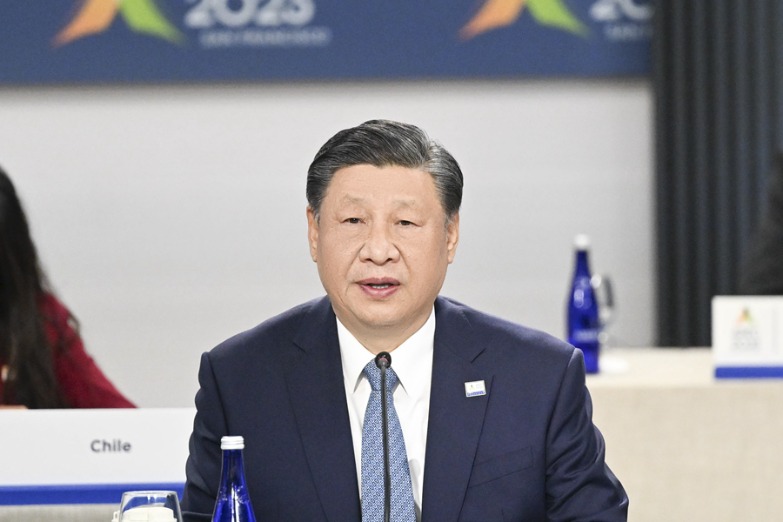
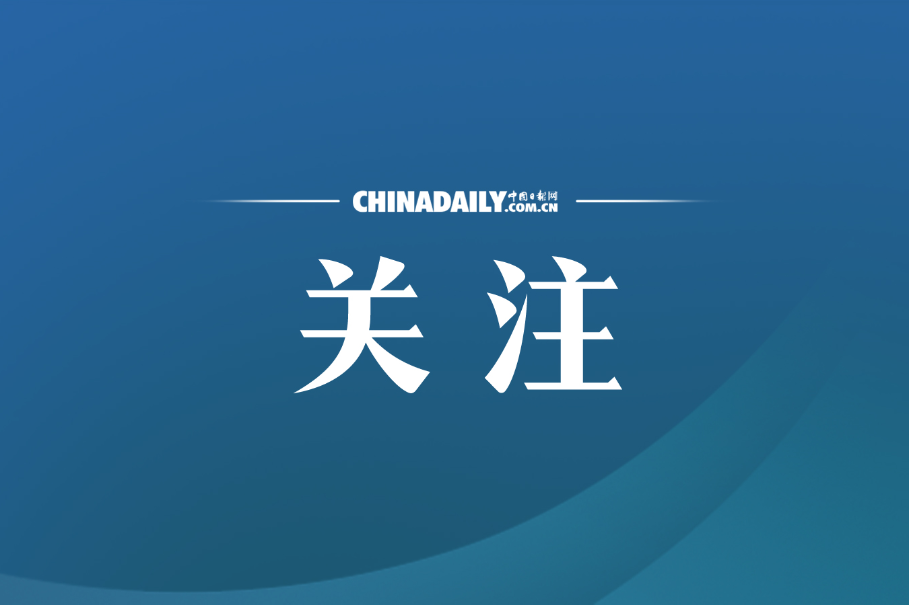
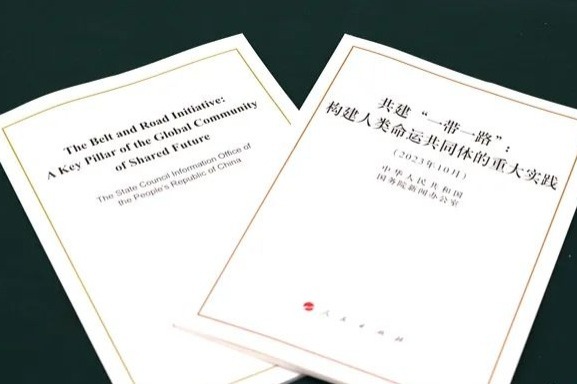
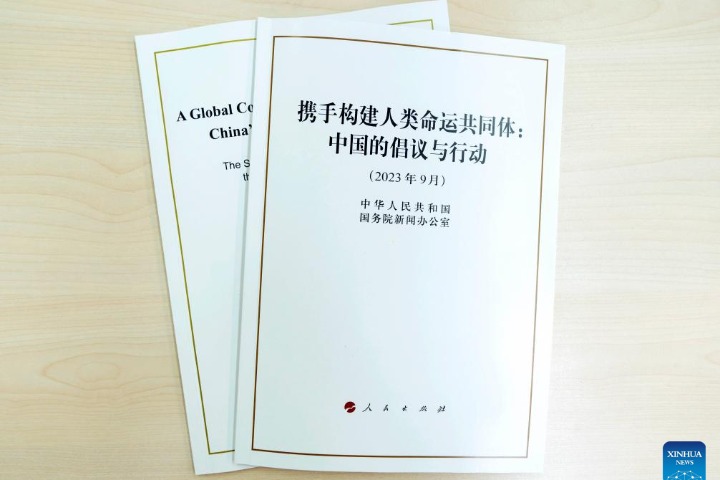
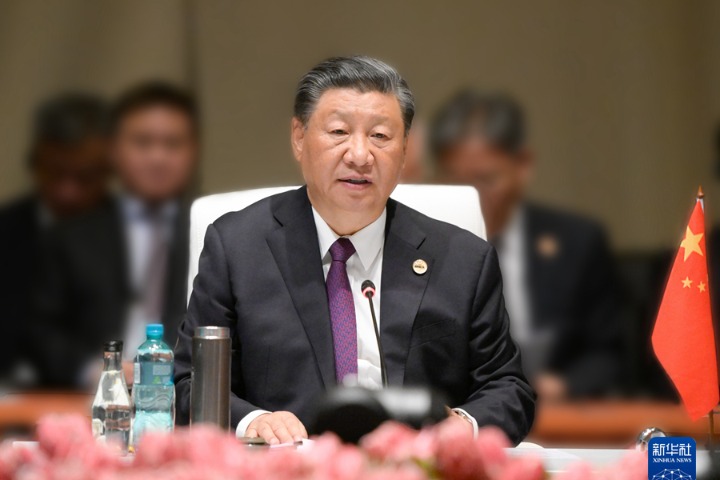



 英语点津微信
英语点津微信 双语小程序
双语小程序